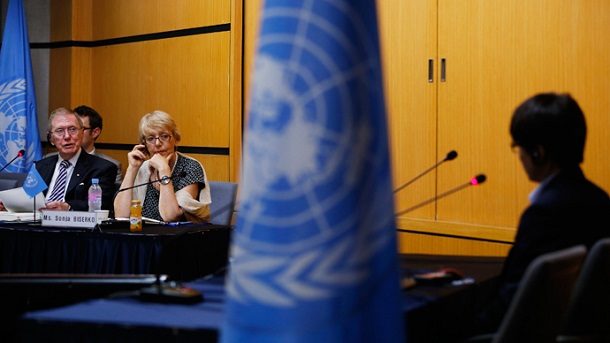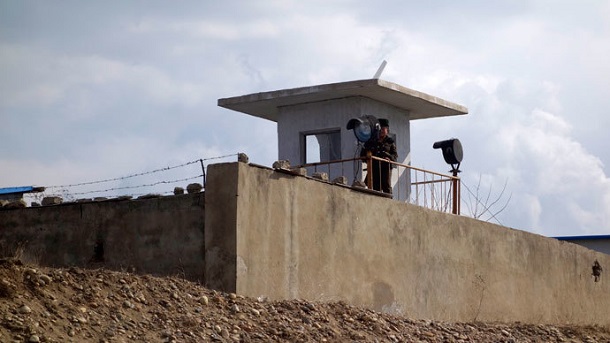Horrifying accounts of human rights abuse in North Korea were described by witnesses to UN Commission of Inquiry. They claim to have survived Gulag-style camps, where public executions, even a mother in a North Korean prison was forced to kill her own baby.
Jee Heon-a, 34, told the UN Commission of Inquiry that a guard ordered the mother to drown her newborn.
The United Nations Commission of Inquiry on the Democratic People’s Republic of Korea (DPRK), which was set up this March to investigate “systematic, widespread and grave violations of human rights” in the country, on Tuesday held its panel hearing in Seoul.
Speaking softly, she took a deep breath before telling a retired Australian judge and other commission panel members: “It was the first time I had seen a newborn baby and I felt happy.
“But suddenly there were footsteps and a security guard came in and told the mother to turn the baby upside down into a bowl of water,” she said.
“The mother begged the guard to spare her, but he kept beating her. So the mother, her hands shaking, put the baby face down in the water.
“The crying stopped and a bubble rose up as it died. A grandmother who had delivered the baby quietly took it out.”
Ms Jee was one of a number of past prisoners who have been addressing the commission in South Korea’s capital Seoul.
It is the first time North Korea’s human rights record has been examined by an expert panel.
The North, now ruled by a third generation of the founding Kim family, denies it abuses human rights.
It refuses to recognise the commission and has denied access to investigators.
Harrowing accounts from defectors now living in South Korea told how guards committed torture and brutality.
Ms Jee added that there was so little to eat in the prison that she, like many of the others, was forced to survive on salted frogs.
She said: “Everyone’s eyes were sunken. They all looked like animals. Frogs were hung from the buttons of their clothes, put in a plastic bag and their skins peeled off. They ate salted frogs and so did I.”
Another witness, Shin Dong-hyuk, said he was forced to watch the execution of his mother and his brother who had both attempted to escape.
He said he was also punished for dropping a sewing machine, adding: “I thought my whole hand was going to be cut off at the wrist, so I felt thankful and grateful that only my finger was cut off.”
The ex-inmates giving evidence are among a handful to have escaped and fled South Korea, where they have claimed asylum.
There are estimated to be 150,000-200,000 people in North Korean prison camps and defectors say many inmates are malnourished or worked to death.
After more than a year and a half ruling North Korea, 30-year-old Kim Jong Un has shown few signs of changing the rigid rule of his father, Kim Jong Il, and grandfather, state founder Kim Il Sung.
Few experts expect the commission to have an immediate impact but say they hope it will serve to raise awareness of what has been happening in the country.
Bill Schabas, professor of international law at Middlesex University, said: “There would need to be profound political changes in North Korea to make headway in the field of human rights.”
[adrotate group=”12″]


